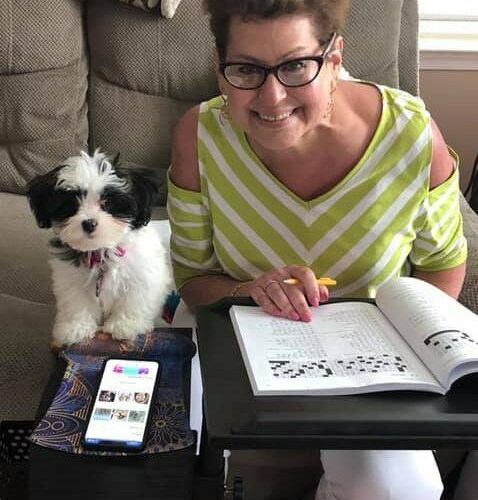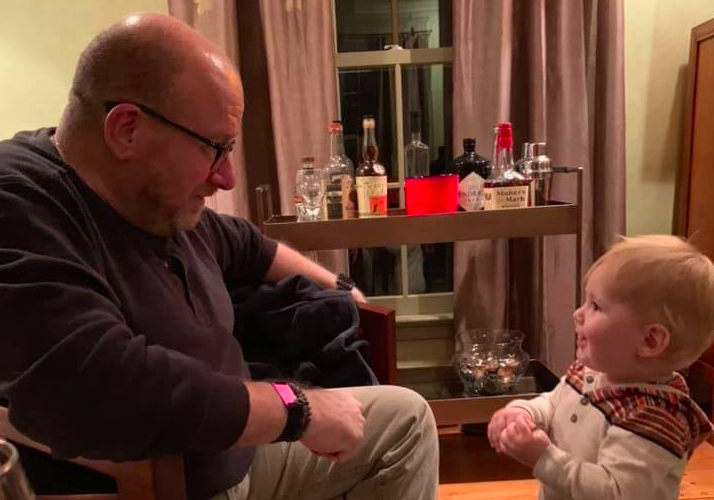Slightly more than a year ago now, my sister and I visited a friend from childhood who had been fighting colorectal cancer for more than five years. A few weeks before our visit, doctors had put her on home hospice because she was out of treatment options. The cancer had spread to her brain.
I was fairly apprehensive about seeing her — it had been more than 30 years — and was completely unsure what to expect. When we arrived, however, we found our friend to be in what seemed to be fairly good health and spirits.
Yes, there was a hospital bed sitting in what should have been the dining room. And, yes, Elaine came down the stairs from her upstairs bedroom slowly. But there were also many signs of life: A new Maltipoo puppy frolicked in a tiny pen in the living room and competed for attention with two other older Maltipoos. Music was playing and a stack of reading material and a crossword puzzle book sat next to Elaine’s spot on the couch.
She was somewhat frail but mentally she was all there. We sat and visited for a while and I played with her new puppy while she and my sister reminisced. They were much closer friends, and although they had lost touch, they still had much more of a shared history. The decades since I’d seen her and my faulty memory meant that my recollections of the neighborhood we grew up in and the friends from the block were hazy at best.
After a while, we took Elaine to lunch at a nearby restaurant. She was using a walker but generally did not seem like someone who had weeks left to live. She was proud that she had fought stage four colorectal cancer since 2013 and delighted that she was able to see her son graduate from college earlier in the summer.
Elaine and I commiserated over living with a fatal disease and I complimented her for fight and determination. She was definitely not drowning in depression. And she wasn’t angry about her imminent passing but instead using her remaining hours to see folks she hadn’t seen in a while. I didn’t recognize most of the names, but she was full of plans to see people for lunches and dinners over the coming days and weeks.
A few weeks after our visit, my sister forwarded me a Facebook post in which Elaine’s brother announced that Elaine had passed away. She passed in her sleep, at home, surrounded by her family, just as she had hoped.
I couldn’t believe it. As I told my sister, I saw a Facebook post from Elaine only days before with a picture of the new puppy. But my more observant sister told me she noticed that despite this week’s post, Elaine had pretty much stopped using Facebook and my sister knew that the end was probably near.
The doctors had given Elaine three to six weeks to live when they put her on hospice care. Elaine extended that projection to two full months. Just as she had soldiered right through the initial two year life expectancy doctors had given her after her initial diagnosis.
I know that when my time comes, I probably won’t be in any position to gather long-lost friends. At my end, I will be a completely different being, likely unable to recognize my family and my husband and certainly not able to reminisce about the good old days.
As my sister drove us home that June afternoon, I tried to convince myself that I could be as brave about facing death as our friend Elaine. I hope to emulate her, her strength and her courage. Elaine, you gave me added determination to live and explore, and despite our current national woes, I think of you often when the challenges begin to feel insurmountable. For that, I owe you continued thanks.
Phil Gutis is a former New York Times reporter and current Being Patient contributor who was diagnosed with early onset Alzheimer’s. This article is part of his Phil’s Journal series, chronicling his experience living with Alzheimer’s.





